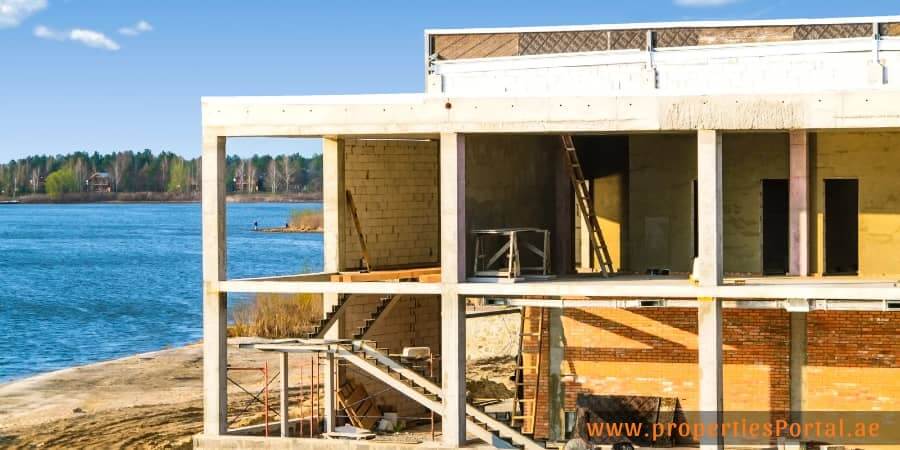Real estate legislation in the Emirates has regulated the movement of the Emirati real estate market at the level of buying, selling, and renting operations for various residential, commercial, industrial, and hotel units and lands. Especially since the United Arab Emirates is unique in having several laws and government decrees that regulate the transactions of citizens and foreign expatriates in the real estate field, and in a way that guarantees their legal and financial rights.
- The UAE government has succeeded in enacting various laws and legislation and has also issued subsequent amendments to them to keep pace with any urgent changes. Whether laws regulating buying and selling procedures or rental laws and clarifying the rights and duties of the landlord and tenant, as well as property laws for citizens and freehold ownership for foreigners.
Through our next article, we will shed light in detail on the impact of real estate legislation on the real estate market in the Emirates in terms of its growth rate, real estate price fluctuations, and rates of supply and demand, in addition to reviewing its impact on the reality of investment in the Emirates and its role in attracting more foreign investment projects.
Analyzing the impact of real estate laws on the growth of the real estate market in the Emirates
The United Arab Emirates was established in 1971, and it began supporting and advancing the real estate sector since its early inception. In this context, the most important legislation was put in place, which came in the form of decrees, laws, and decisions of various directions, in a way that develops the UAE real estate market and enhances its continuous growth.
- In addition to the general real estate laws of the UAE, each emirate has a set of special real estate legislation regulating its real estate transactions in a way that suits the style and way of life in the emirate. Consequently, this was reflected positively on the growth of the UAE real estate market and its gaining great confidence from residents and foreign investors.
- In addition, the real estate market in the Emirates has attracted the most important foreign investment projects through its reliance on real estate laws that protect the rights of investors. Including the freehold law and the private property law and its amendments.
- It is expected that the UAE real estate laws will continue to operate in the coming years, with the possibility of amending them according to the requirements of the current situation and to ensure support for the real estate market and the movement of buying, selling and renting various types of real estate.
The impact of real estate legislation on real estate prices in the Emirates

The impact of real estate legislation in the UAE on real estate prices appears, including whether the price of real estate rises, falls, or maintains its market value.
- Real estate laws and regulations have had a significant impact on increasing the number of real estate projects through the enactment of decrees and decisions encouraging construction and granting licenses, and this has led to an increase in demand for purchasing and renting real estate at high prices.
- While the strict and stringent laws against real estate violations, and the complete restriction of contractors to real estate controls and regulations, often contribute to the stagnation of the movement of buying and selling real estate and consequently the decline in their prices.
Real estate policies and their impact on investment in real estate in the Emirates
Real estate legislation in the Emirates and the policies followed by the Emirati government have contributed to supporting real estate investment through the following points:
- Freehold Law: The Freehold Law allows foreign residents and expatriates to own real estate in specific areas in the Emirates – Dubai. This is done under a freehold contract for the entire property, including building and land, with easy procedures.
- Identifying areas designated for ownership by foreign investors: The UAE government has designated areas designated for foreign ownership, especially in the Emirate of Dubai, including the Dubai Marina area and the Jumeirah Beach Residence area. The investor can carry out buying and selling operations for his own property within these areas with ease and within UAE real estate laws and legislation.
- Rental laws: Foreign investors can benefit from the UAE rental laws, which stipulate the follow-up of the procedures of the rental process and state the rights and duties of both the landlord and the tenant.
The impact of real estate legislation on demand and supply in the real estate market in the Emirates
Supply and demand indicators in the UAE real estate market are linked to real estate laws and legislation that regulate buying, selling, and renting operations within the real estate sector.
- The real estate laws and their recent amendments in the Emirates of Dubai and Abu Dhabi have contributed to facilitating the procedures for granting building permits for residential and commercial real estate projects at acceptable costs, which has helped to offer them at competitive prices and thus increased demand for them.
The decisions and laws regarding free ownership of foreigners also encouraged attracting larger numbers of investors of different nationalities. The freehold law allows non-citizens the possibility of owning real estate within specific real estate areas while residing for long periods within Emirati territory. Consequently, this law stimulated investors to start their real estate projects and significantly increased the demand for purchasing and renting real estate as well.
The impact of real estate investment laws on real estate development in the Emirates
Real estate development is considered one of the types of commercial businesses witnessed in the real estate sector in the Emirates, as it includes repair, restoration, and renovation of old buildings and rebuilding them again, partially or completely. This is done through real estate development companies or real estate developers who work individually. Then, it is marketed to either local clients or foreign investors, with the aim of facilitating the process of selling or renting the property that has been developed.
Real estate legislation in the Emirates has contributed to supporting the reality of real estate development by issuing laws and decisions that include several points within the framework of real estate development, which are as follows:
- Real estate ownership laws for citizens and foreigners.
- Procedures for concluding and officially documenting sales and lease contracts.
- Legal protection decisions for real estate owners and clients.
- Penal laws against violators of legislation and provisions specific to real estate development transactions.
The impact of real estate legislation on foreign investors in the real estate market in the Emirates
Real estate legislation in the UAE has affected the movement of foreign investors through the following points:
- Freehold Law: Allows foreign investors to obtain ownership of real estate in areas specified by the UAE state. Including residential and commercial properties.
- Rental Concession Law: Foreign expatriates, individuals, and companies, can obtain a concessionary right, which stipulates that the property can be rented for a long period of up to 99 years.
At the conclusion of our article, which focused on the impact of real estate legislation on the real estate market in the Emirates in terms of new challenges and opportunities. It is important to point out that the differences in real estate laws and decisions, as well as their various amendments and ramifications, contribute as a whole to organizing and developing the reality of the real estate sector. It also contributes to enhancing the growth of the UAE real estate market, encouraging local and foreign investment steps, and providing all facilities to investors on the legal and financial levels.




